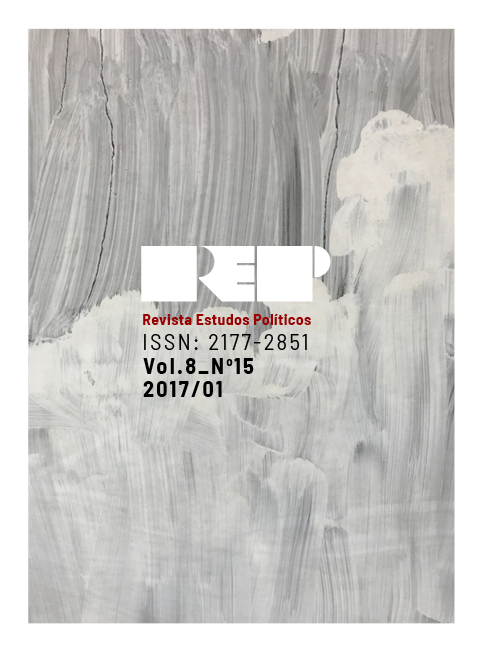Politics, Institutions and Social Struggles: Beyond Pure Normativism and Strong Institutionalism in Political Theory
DOI:
https://doi.org/10.22409/rep.v8i15.39829Palavras-chave:
Democracy, Normativism, Institutionalism, Social Classes, Social StrugglesResumo
In this article, I criticize the tendency in contemporary philosophical-political theory to affirm both pure normativism and strong institutionalism as the heart of democracy, denying a political core not only to social classes, but also to social struggles, which define the main social, cultural and political dynamics, institutionalized and non-institutionalized. The association between pure normativism and strong institutionalism leads, on the one hand, to the separation and opposition between normative foundations and social classes and social struggles, as well as, on the other hand, to the institutional monopolization both of political legitimation and social evolution, because institutions exclusively assume the guard, the legitimation and the public boosting of social normativism. Pure normativism and strong institutionalism, in other words, reduce politics to institutional and systemic politics, as they reduce political subjects to institutional legal staffs, as political parties and technical elites, attributing a peripheral role to social classes and social struggles, a peripheral role also to the politicity of social and institutional life. I argue that this harmful tendency of many philosophical-political theories, fundamentally in the spectrum of liberalism and social democracy, which suffer from a historical-sociological blindness, must be substituted with the affirmation of the centrality of social classes as the real political subjects of social evolution, as well as of the centrality of social struggles as the political-normative basis to the definition of institutional designs, social evolution and economic structuresDownloads
Downloads
Publicado
Edição
Seção
Licença
Para submeter um manuscrito, os autores devem realizar o cadastro na plataforma, fornecer os dados solicitados e seguir as orientações recomendadas. Para tanto, será necessário apresentar o número da identidade de pesquisador. Para obtê-lo, é necessário realizar o cadastro na plataforma Open Researcher and Contributor ID (ORCID).
Ao submeter um manuscrito, os autores declaram sua propriedade intelectual sobre o texto e se comprometem com todas as práticas legais relativas à autoria. A submissão implica, ainda, na autorização plena, irrevogável e gratuita de sua publicação na REP, a qual se responsabiliza pela menção da autoria.
A REP tem acesso aberto e não cobra pelo acesso aos artigos.
Orientando-se pelo princípio de que tornar público e disponibilizar gratuitamente o conhecimento científico contribui para a democratização mundial do conhecimento, a REP adota a política de acesso livre e imediato ao seu conteúdo.
No mesmo sentido, a REP utiliza a licença CC-BY, Creative Commons, a qual autoriza que terceiros distribuam, remixem, adaptem e criem a partir do trabalho, inclusive para fins comerciais, desde que se reconheça e torne público o crédito da criação original.
Para mais informações, contatar a editora através do e-mail revistaestudospoliticos@gmail.com


